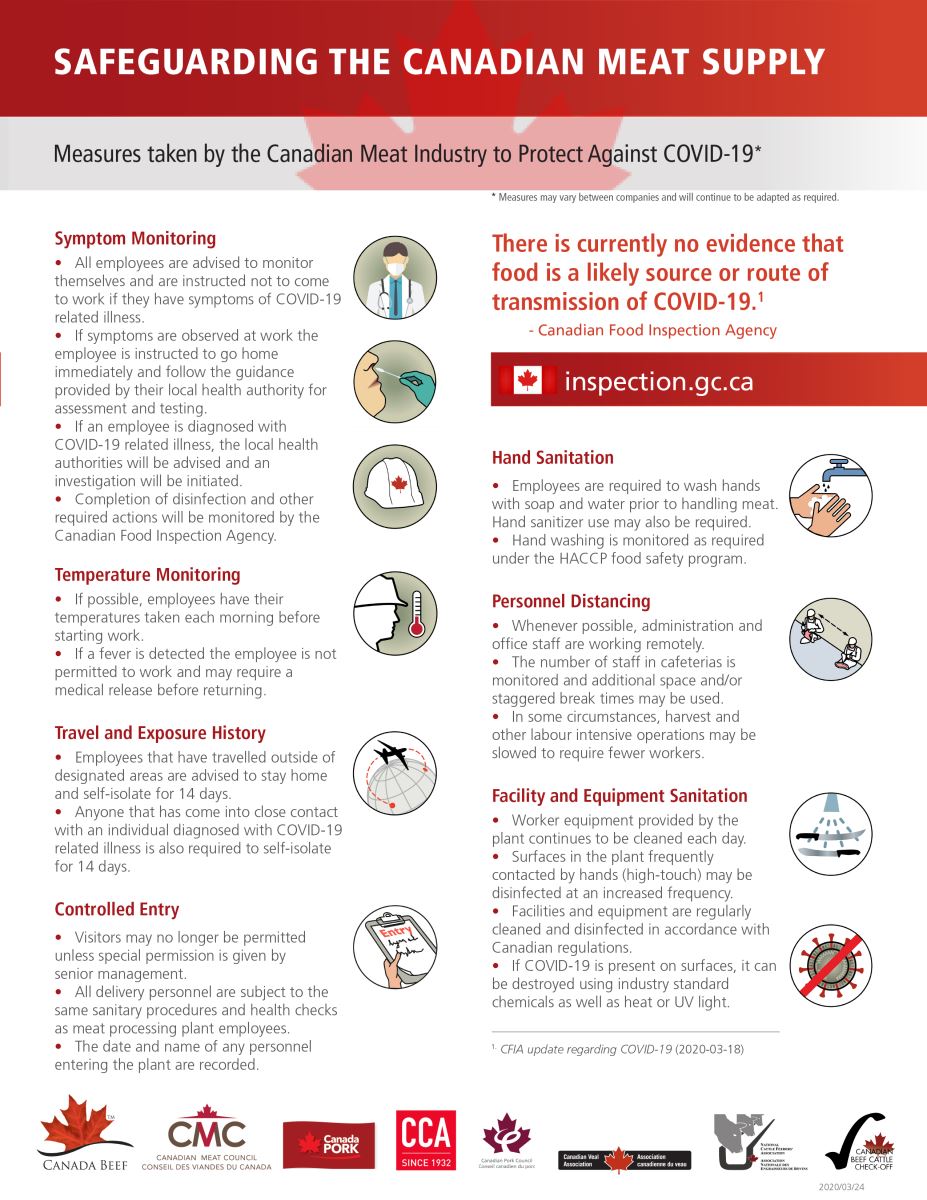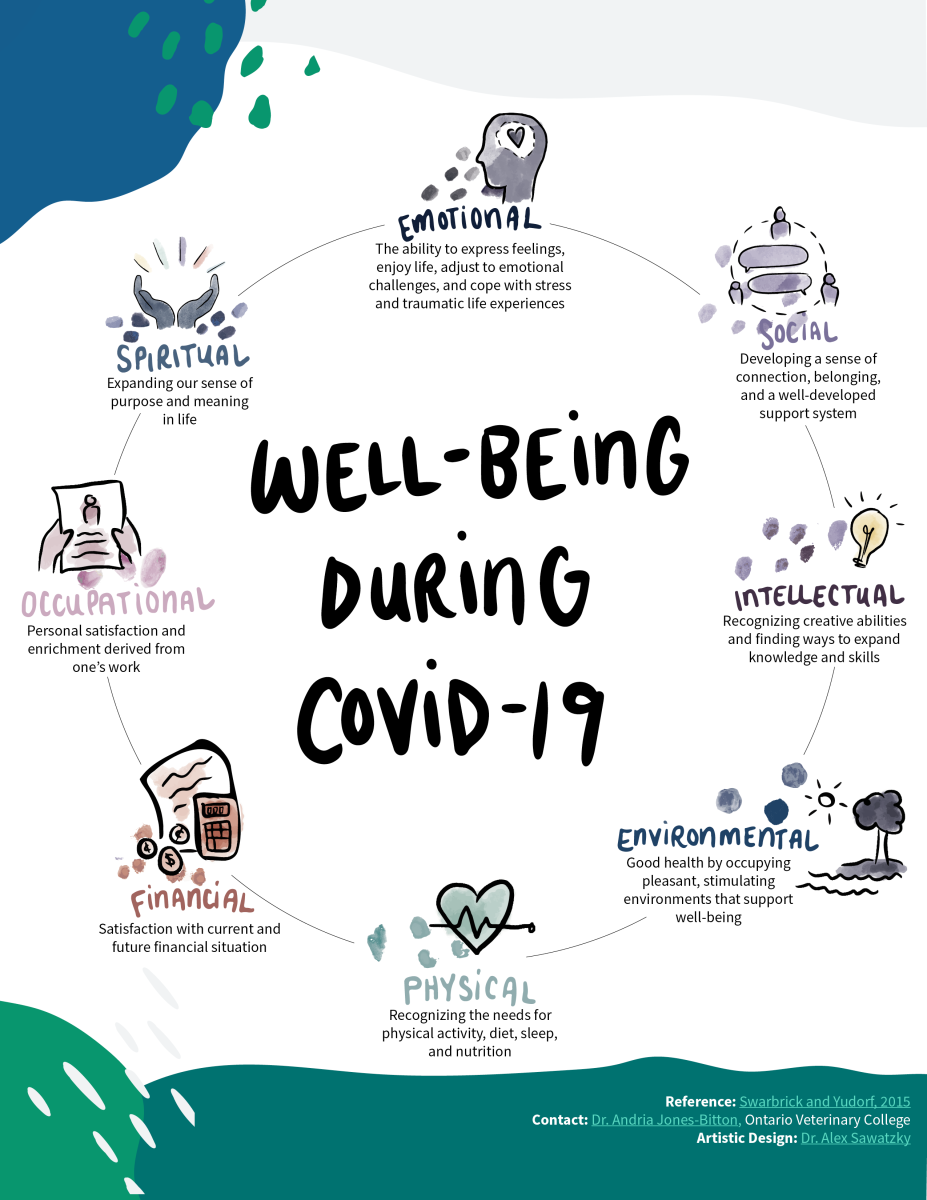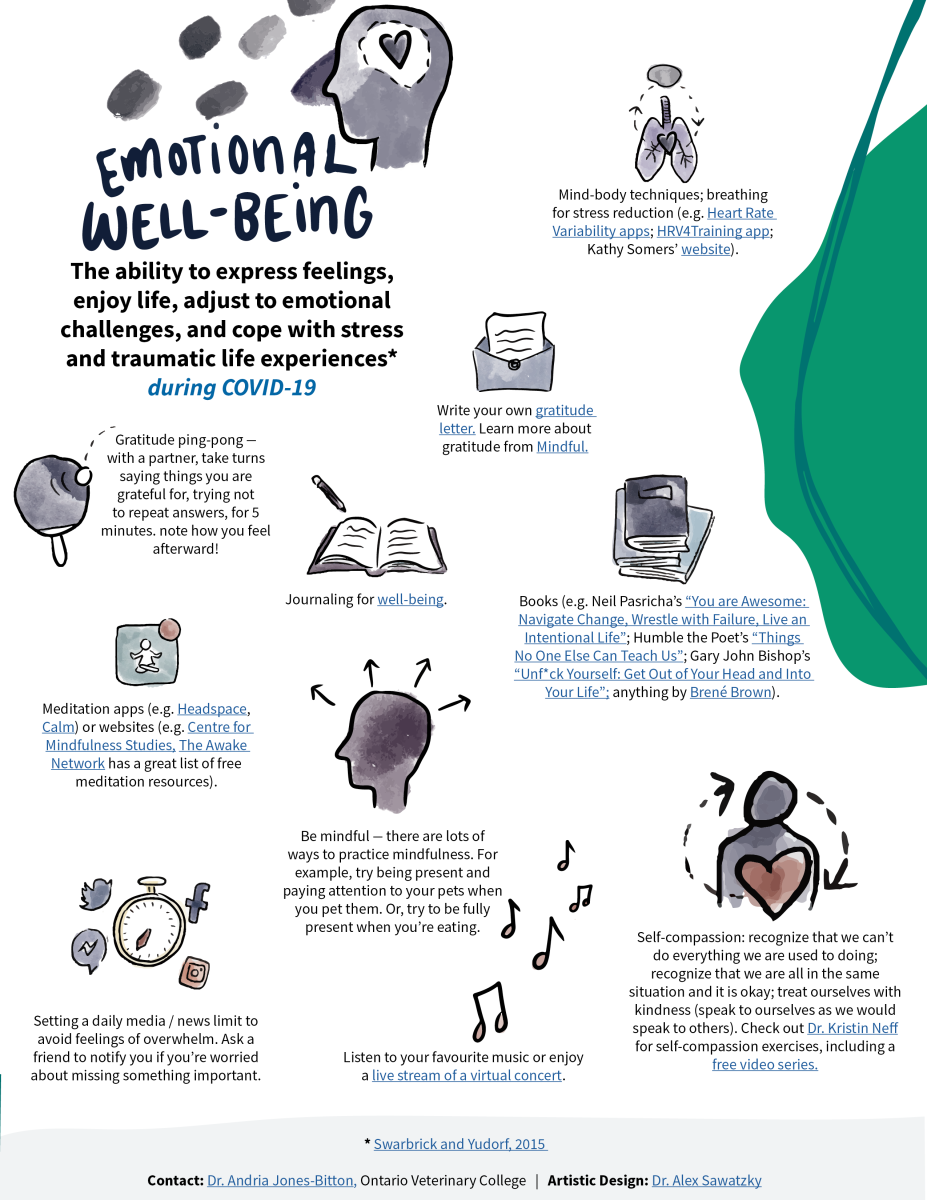COVID-19 and Canadian Pork Production
As the COVID-19 virus spreads across the world, Canadian pork producers continue to do what they do best: raise healthy animals for safe and nutritious food production.
It is the work of the entire sector that allows food to be readily available in Canada, and the pork industry is keeping a close eye on the situation as it evolves.
It is important to note that COVID-19 is not transmitted by pork or pigs. There is no research that suggests pigs are susceptible to COVID-19.
To learn more about the CPC's efforts to support pork producers during this crisis, please click here.
July 1st, 2020 - International Meat Secretariat and International Poultry Council Statement to the General Administration of Customs, People's Republic of China on COVID-19
Useful information for pork producers
COVID-19 Resources
Several Canadian organizations have compiled a list of COVID-19 resources helpful to producers.
COVID-19 training for workers in meat production
The Canadian Beef Centre of Excellence in collaboration with the CPC and other organizations representing the interest of the animal protein sector has developed tools to share information about COVID-19 to those who work in meat production.
The following 20 minute video is divided in 4 sections:
- Understanding COVID-19
- Staying safe at home
- Staying safe at work
- Self-care and symptoms assessment
This video is available in English, French and Spanish.
 |
A PDF document is also available in:
|
Measures taken by the Canadian Meat Industry to Protect Against COVID-19
Food Safety and COVID-19


Staying healthy to take care of your pigs
-
Mind your personal hygiene.
- Wash your hands with soap and water frequently. Use a fingernail brush to clean under your fingernails. Use hand sanitizer when you don’t have access to soap and water.
- Cover your mouth with a tissue or the inside of your arm if you cough or sneeze.
- Dispose of any used tissue in a trash can and wash your hands with soap and water.
- Do not touch your eyes, nose and mouth with unwashed hands.
-
Keep your distance.
- Practice social distancing. Keep a one-meter distance between you and other people. Stay away from crowds.
- Avoid contact with people who are sick.
- If you feel sick, stay home and avoid contact with others.
- If you believe you have COVID-19, self isolate immediately and follow the recommendations of your local health agency to get tested.
3. While on farm
- Stagger your coffee and lunch breaks. Different Teams should take breaks at different times. As the team leaves the kitchen quickly wipe down all surfaces that are touched often with a cloth and disinfectant.
- While in the lunchroom maintain social distancing of at least 2 meters between yourself and other persons.
- Avoid sharing devices. If you need to share a device clean it with a cloth and disinfectant. This includes syringes (clean as per existing protocol), ultrasound, Zephyr guns, and any other devices you routinely share.
- Daily - Clean all surfaces that are touched often with a cloth and disinfectant.
- Daily - Clean with bathroom with sanitizers, ensure the door handle, sink and taps are cleansed with a cloth and disinfectant.
*With information from Prairie Swine Health Services
5 things to do in your barn in light of COVID-19.
-
Take care of yourself
Ensure you are staying healthy to take care of your pigs, your workforce and your family. Mind your own personal hygiene, keep your distance and clean and disinfect surfaces.
-
Take care of your workforce
Ensure your employees are aware of proper hygiene to minimize the spread of disease. Make sure they have everything at their disposal to practice proper handwashing. If employees feel sick, give them time off work to get healthy again.
Take appropriate measures so your employees can work. Closures of services in the community might have a greater impact on them than you expect. Keep the communications lines open, and contribute to problem-solving.
If your employees can work from home, ensure they have the proper tools to do so. Provide them with the equipment, technical and other, to do so.
Think ahead. Plan for alternate working schedules if some employees cannot work. Find alternative ways to take care of the most pressing work.
See Canadian Agricultural Human Resources Council for more information.
-
Plan for possible disruptions in the value chain
Think about your needs for the next three months, and consider buying and storing the supplies you will be needing in advance. If your main supply source is compromised, where else can you obtain what you need?
-
Modify travel plans and logistics for business meetings
Cancel or postpone international travel plans. Restrict your travels to what is absolutely necessary. If you must hold or attend meetings, consider doing so from a distance, using teleconferencing and videoconferencing.
-
Expect daily routines to be challenged.
Develop contingency plans and adapt to a fluid situation. If the transportation system operates at reduced capacity, what are the possible impacts on your farm? How will you mitigate that impact?
* Inspired by Jennifer Shike, Farm Journal’s Pork, porkbusiness.com
8 Domains of Well-Being... COVID-19 Style
Resource provided by Dr. Andria Jones-Bitton

